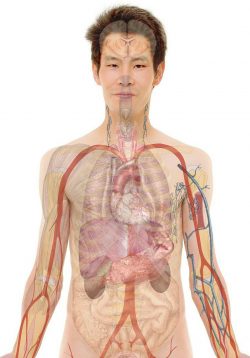How Does Methadone Affect the Brain?
If you’re thinking of taking methadone for your opioid addiction, you might have some concerns.
You might be wondering how methadone affects your body and what exactly happens when you take a dose.
These concerns are natural. In fact, being concerned about how methadone will affect you is a great sign. It means that you are taking a greater interest in your health and are being more proactive about your recovery.
When you take methadone, you will see a reduction in your opioid withdrawal symptoms. You might also experience a few symptoms that are similar to taking other opioids, but much less pronounced.
This is all because of the way methadone interacts with your brain.
What Happens as Methadone Enters the Brain?

Methadone eliminates withdrawal symptoms by binding to your opioid receptors.
All opioid medications have the same basic reactions in your brain.
When you take your oral dose of methadone, it begins to bind to specific opioid receptors. It is this action that causes the tell-tale side effects like euphoria and pain relief.
Normally, your body’s natural opioids bind to these receptors in order to regulate neuroendocrine function in the body. However, because methadone is an artificial opioid, it prevents these natural opioids from attaching in the brain, producing noticeable symptoms.
Because methadone has a long half-life, it can stay attached to your receptors for up to 24 hours at a time – preventing the rapid withdrawal symptoms that accompany heroin use.
Overall, scientists have determined that the thalamus is the area of the brain which sees the highest rates of binding. Since the thalamus plays a huge role in pain perception, this accounts for the pain-relieving power of methadone.
Want to learn more about the science behind methadone and the brain? Call our hotline now at 800-678-5931(Paid Advertiser) to speak with a knowledgeable representative who can answer your questions.
Using Brain Scans to Observe the Brain on Methadone
There have been several studies done that show the positive effects of methadone on the brain.
One study looked at how the brain reacted to seeing certain stimuli that reminded methadone maintenance patients of heroin. They then showed neutral stimuli to a test group to see the difference, using brain scans to observe the inner workings of the organ.
In the heroin-stimuli group, participants had a heightened response in the amygdala, insula, and hippocampal complex. These are the centers that deal with memory and emotion.
However, after the patients had received their daily dose of methadone, these reactions were reduced.
What does this mean? It suggests that methadone helps to control emotional cravings when surrounding by things that remind a person of heroin.
Another study used imaging scans to observe how methadone maintenance therapy affected the brain after the first month of therapy.
Researchers looked at heroin users who had abnormal levels of specific metabolites related to cellular energy production. As the month went on, these metabolites levels changed, which might suggest that switching from heroin to methadone could improve oxygen supply in the brain.
The researchers also concluded that mental and cognitive abilities improved in a separate study that involved looking at methadone patients during their first two months of treatment.
Get Started With Treatment Today
Now that you know how methadone works inside of you, there’s nothing to be afraid of. It’s a great treatment that can help you end your addiction for good.
Ready to get started? Call us now at 800-678-5931(Paid Advertiser) to learn more about the treatment centers near you.
